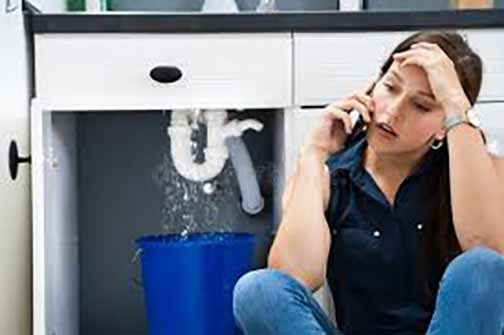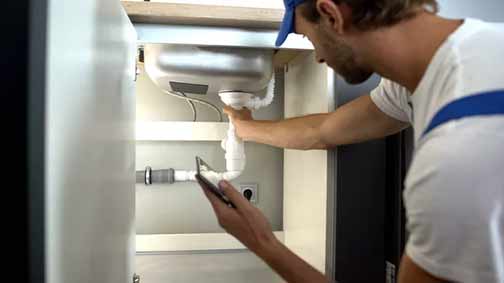
Understanding the Financial Burden of Broken Plumbing
Plumbing issues are often underestimated in their ability to cause significant financial strain. While a dripping faucet or a slow leak may seem trivial, these seemingly minor problems can escalate into substantial costs over time. Understanding the financial implications of broken plumbing is crucial for homeowners and tenants alike, as neglecting these issues can lead to inflated utility bills and costly repairs.
When plumbing systems malfunction, the immediate effects are often visible in the form of increased utility bills. However, the long-term financial burden can be even more severe. The costs associated with water damage, mold remediation, and structural repairs can quickly accumulate, creating a financial strain that can be difficult to manage. Recognizing the potential for such expenses is the first step in preventing them.
The Hidden Costs of Neglected Plumbing Fixtures
Neglected plumbing fixtures can silently drain your finances. A leaking faucet, for example, can waste hundreds of gallons of water per month, leading to increased water bills. Similarly, a running toilet can use up to 200 gallons of water per day, dramatically affecting your monthly expenses. These hidden costs often go unnoticed until the cumulative effect becomes evident in your utility bills.
Beyond the immediate increase in water bills, neglected plumbing fixtures can lead to more insidious financial consequences. Persistent leaks can cause water damage to your property, requiring costly repairs and potentially lowering the value of your home. Additionally, the presence of excess moisture can lead to mold growth, which not only poses health risks but also necessitates expensive remediation efforts. The financial impact of these issues can be substantial, emphasizing the importance of addressing plumbing problems promptly.
How Plumbing Issues Inflate Utility Bills
Plumbing issues can rapidly inflate utility bills in several ways. Leaks, whether visible or hidden, contribute to water wastage, which directly impacts your water bill. Additionally, inefficient plumbing systems can increase energy consumption, especially if hot water is involved. For instance, a malfunctioning water heater can consume more energy to heat water, leading to higher electricity or gas bills.
Moreover, plumbing issues can affect the efficiency of your heating and cooling systems. Leaks in hot water pipes can cause your water heater to work harder, increasing energy usage and costs. Similarly, leaks in sewer lines can lead to increased energy consumption by forcing sump pumps to run more frequently. These indirect effects on utility bills highlight the interconnected nature of home systems and the importance of maintaining plumbing infrastructure.
The Ripple Effect: Costs Beyond Utility Bills
The financial impact of broken plumbing extends beyond utility bills. Water damage from leaks can necessitate costly repairs to walls, floors, and ceilings. Mold growth, a common consequence of persistent moisture, can lead to health issues and require professional remediation. Furthermore, structural damage caused by prolonged leaks can compromise the integrity of your home, leading to expensive renovations.
In addition to physical damage, broken plumbing can affect the value of your property. Homes with unresolved plumbing issues may be appraised at lower values, impacting your ability to sell or refinance. Potential buyers may also be deterred by visible signs of water damage or mold, leading to prolonged market times and reduced offers. This ripple effect underscores the importance of maintaining plumbing systems to protect both your home and your financial well-being.

Preventive Measures to Mitigate Financial Loss
Taking preventive measures is key to mitigating the financial impact of broken plumbing. Regular inspections and maintenance can help identify potential issues before they escalate. Homeowners should prioritize detecting and fixing leaks, even minor ones, and ensure that plumbing systems are functioning efficiently. Investing in quality fixtures and appliances can also prevent frequent breakdowns and reduce long-term costs.
Implementing a proactive plumbing maintenance plan can significantly reduce the likelihood of unexpected expenses. Scheduling routine inspections by professional plumbers can help identify issues such as worn-out seals, corroded pipes, and inefficient fixtures. Additionally, upgrading to water-efficient appliances and fixtures can lower water usage and reduce bills, providing long-term savings and environmental benefits.
The Role of Professional Plumbing Services
Professional plumbers play a crucial role in managing and preventing plumbing-related expenses. Hiring a licensed plumber for regular maintenance checks can save money in the long run by identifying and addressing issues early. Plumbers also offer expertise in installing efficient plumbing systems, which can significantly reduce water and energy consumption.
Beyond routine maintenance, plumbers can assist with emergency repairs, ensuring that issues are resolved quickly and effectively. Their expertise in handling complex plumbing systems can prevent further damage and reduce the risk of recurring problems. By investing in a professional plumber, homeowners can safeguard their property and finances, minimizing the stress and costs associated with plumbing failures.
Financial Planning for Plumbing Emergencies
Financial planning is essential to cope with unexpected plumbing emergencies. Setting aside a budget for home maintenance and repairs can alleviate the stress of sudden expenses. Homeowners should also consider insurance options that cover plumbing-related damages, offering financial protection in case of major incidents.
Creating a dedicated home repair fund can provide peace of mind when facing plumbing emergencies. By regularly contributing to this fund, homeowners can ensure that they have the resources needed to address urgent repairs without disrupting their financial stability. Additionally, reviewing insurance policies to include coverage for water damage and mold remediation can offer valuable protection against unforeseen events.
Conclusion: The Importance of Addressing Plumbing Issues Promptly
Addressing plumbing issues promptly is crucial to prevent financial strain. Ignoring minor problems can lead to substantial costs over time, affecting both utility bills and home maintenance budgets. By understanding the financial impact of broken plumbing and taking proactive measures, homeowners can safeguard their finances and ensure the longevity of their property.
Ultimately, the key to managing the financial impact of plumbing issues lies in prevention and timely intervention. By prioritizing maintenance and repairs, homeowners can protect their investment and avoid the stress and expense associated with plumbing failures. Embracing a proactive approach to plumbing care ensures a secure and comfortable living environment, free from the financial burdens of neglect.